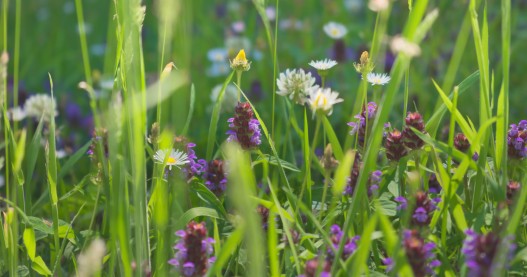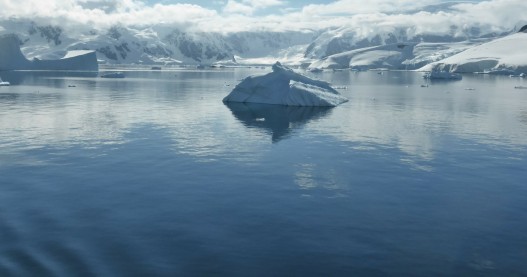Interested in postgraduate study with The Open University, or maybe you just love science? Discover some of the fascinating research our PhD students in School of Environment, Earth and Ecosystem Sciences have been doing in these introductory articles.
-
Can microplastics find their way onto your plate?
Read now to access more details of Can microplastics find their way onto your plate?What harm can microplastics cause to human health and can they get into our food? Joanna Jesionkowska, a research student at The Open University, looks into this here.

-
How to make a mountain: Investigating crustal melting in the Himalaya
Read now to access more details of How to make a mountain: Investigating crustal melting in the HimalayaPhD student, Stacy Phillips, explains how researching granites in Eastern Bhutan can give clues about the evolution of the Himalayan mountain belt.

-
Haymaking is critical to our heritage meadows, but is later really better?
Read now to access more details of Haymaking is critical to our heritage meadows, but is later really better?Meadows are not just about wildflowers, they’re also about hay as an agricultural crop. But they don’t make it like they used to. PhD student, Vicky Bowskill, explains how researching seasonal changes in the nutritional content of hay can help conserve the UK's precious species-rich floodplain meadows.

-
When did the largest ocean current on Earth start?
Read now to access more details of When did the largest ocean current on Earth start?How can fossil fish teeth allow us to understand past deep ocean circulation? PhD student, Sophie Alexander, explains...

-
Ancient Rain: Historic monsoons could help us respond to climate change
Read now to access more details of Ancient Rain: Historic monsoons could help us respond to climate changeResearching the Indian summer monsoon can allow us to develop a better understanding of our changing climate says PhD student, Katrina Nilsson-Kerr.

-
How do microplastics make their way into our food?
Read now to access more details of How do microplastics make their way into our food?We know that microplastics have found their way into our food chain. Understanding the sources of microplastics, their journey to our plates, and what we can do to reduce the risks is essential for tackling this pressing issue.

-
Automated, satellite-based volcano monitoring
Read now to access more details of Automated, satellite-based volcano monitoringLess than 10% of the ∼1500 active subaerial volcanoes around the world are monitored with appropriate frequency says PhD student, Nikola Rogic.

-
Deep oceans can help us understand our climate
Read now to access more details of Deep oceans can help us understand our climateCarbon isotopes found in deep water fossils offer an insight into deep ocean circulation says PhD student, Andrew McIntyre.

-
Exploring the depth of the Antarctic ice sheet...
Read now to access more details of Exploring the depth of the Antarctic ice sheet...Within the comfort of my office and a computer model, Andreas Wernecke explains his research at The Open University.

-
How old is a mountain range?
Watch now to access more details of How old is a mountain range?Eleni Wood explains how the science of 'geochronology' can be used to effectively analyse the history of a mountain range.

-
How to read a rock
Read now to access more details of How to read a rockBy understanding the ways in which minerals combine to form rocks like the way words link to form sentences, we can start to unravel the secrets of the earth.

Like science? Go further with the OU
-
Moons of our Solar System
Learn more to access more details of Moons of our Solar SystemIn this free course, Moons of our Solar System, explore the many moons of our Solar System. Find out what makes them special. Should we send humans to our Moon again?

-
Galaxies, stars and planets
Learn more to access more details of Galaxies, stars and planetsThis free course, Galaxies, stars and planets, is a general introduction, including scale of the universe from the very large to the very small; orbits and gravity; the Solar System; the Sun and other stars; galaxies and the composition of astronomical objects.

-
Astronomy with an online telescope
Learn more to access more details of Astronomy with an online telescopeThis free course shows you how to navigate the night sky, and introduces the wide variety of objects it contains. You will develop a hands-on understanding of telescopic observations using the Open University’s own robotic telescope facility COAST sited on the island of Tenerife. Supported by your own measurements we illustrate how stars...

Rate and Review
Rate this article
Review this article
Log into OpenLearn to leave reviews and join in the conversation.
Article reviews